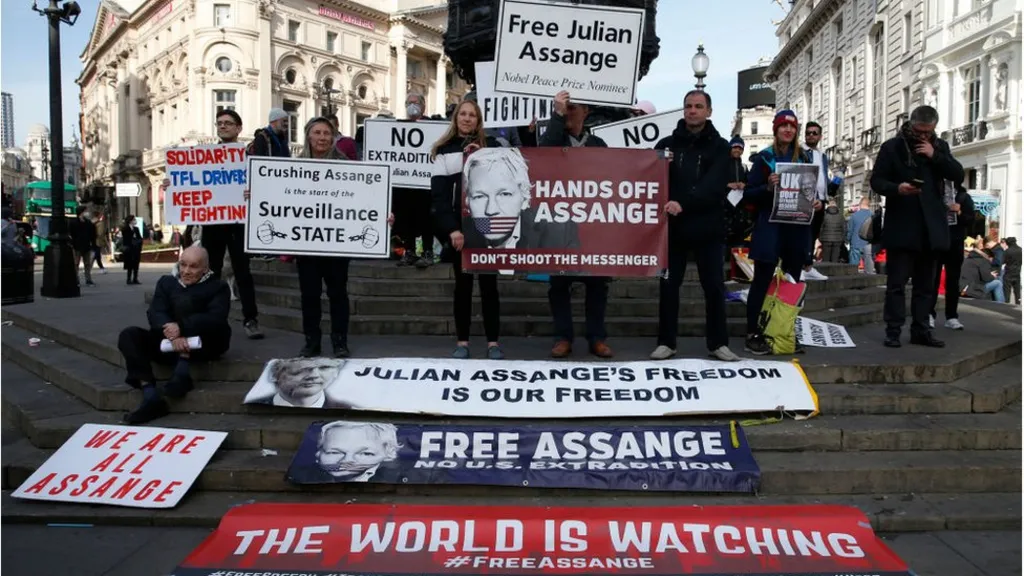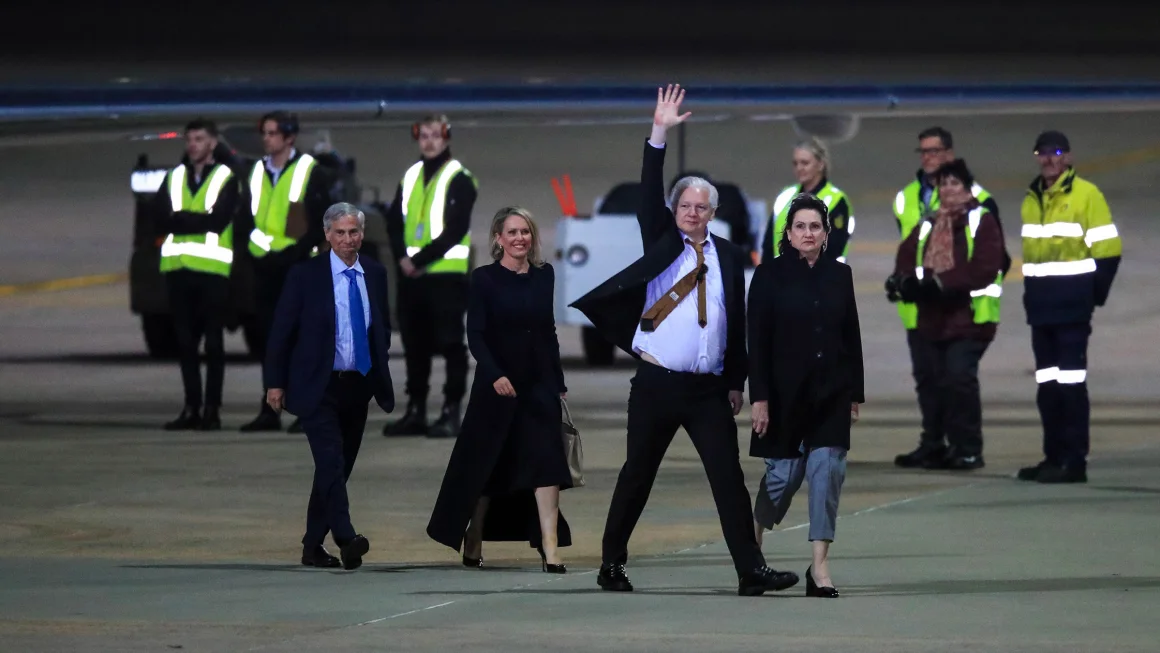By Evridiki Fatolia,
Julian Assange, an Australian journalist and activist, co-founded Wikileaks in 2006 to leak information of public interest. In 2010, Wikileaks published video footage depicting the inhumane conversations of US soldiers and classified military documents, leading to the release of 250,000 US diplomatic documents and Guantanamo prison documents. This exposed the US government’s narrative of destabilizing Arab regions and fighting terrorism in those areas. Assange’s actions made him dangerous to the US government, as the truth had been exposed to the international community.

The US launched a human hunt against Assange, accusing him of conspiracy to obtain and disclose national defense intelligence, computer intrusions, obtaining national defense intelligence, and disclosure of national defense information. Assange was initially placed in custody but was granted bail by the High Court and released after his supporters paid £240,000 in cash and bail. In February 2011, another hearing was held, and Assange was released on bail. The US government has since criticized Assange for his actions and the potential consequences of his actions.
In 2012, Julian Assange published the “Syria Files” containing over two million Syrian emails to understand political interests and actions during the civil conflict. In 2013, Assange helped Edward Snowden escape the US and revealed Western Europe’s ties to the US. By 2015, Wikileaks had published over 10 million documents and analyses. In 2016, Assange demanded Chelsea Manning’s release from the US, but her release was delayed. In 2016, Wikileaks published US military intervention in Yemen and Turkish government emails in response to Erdogan’s post-coup actions. Turkey banned access to Wikileaks.
Julian Assange was kicked out of the Ecuadorian Embassy in 2017 by President Lenín Moreno for breaching his asylum requirements. For breaking his bail terms, Assange was given a 50-week sentence to serve in the toughest security jail in London. After a trial to keep him from being released, the court decided in March 2020 that he must stay behind bars because of the significant risk of Transmission of COVID-19.
The historic decision was made in January 2021 to refuse extradition of Assange to the United States of America. But after an appeal by journalists, the Westminster Magistrates Appeals Court in London decided in favor of his extradition to the United States in April 2022. Priti Patel, the UK’s Interior Minister, supported the choice.

After spending seven years in a London embassy under self-imposed exile and five years in a British prison, Julian Assange is officially free. Assange ended his attempt to be extradited to the United States this week, by entering his native continent, Australia, where he entered a plea agreement with Justice Department prosecutors, admitting guilt to obtaining and disclosing US military secrets.
We can’t wait to see what happens next to this story, as the risk of prosecution and a new series of trials are still possible.
Reference
- Julian Assange. Britannica. Available here




